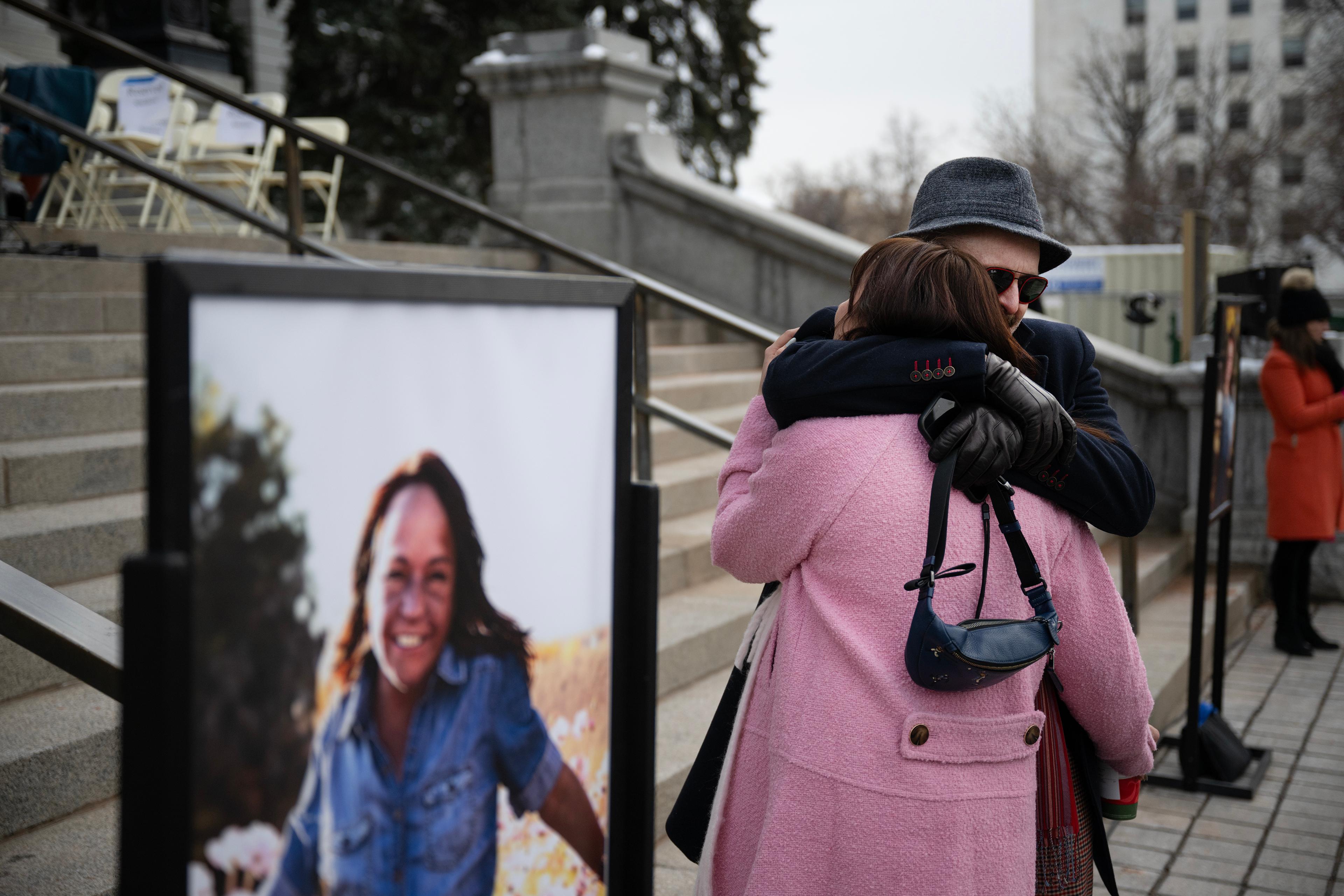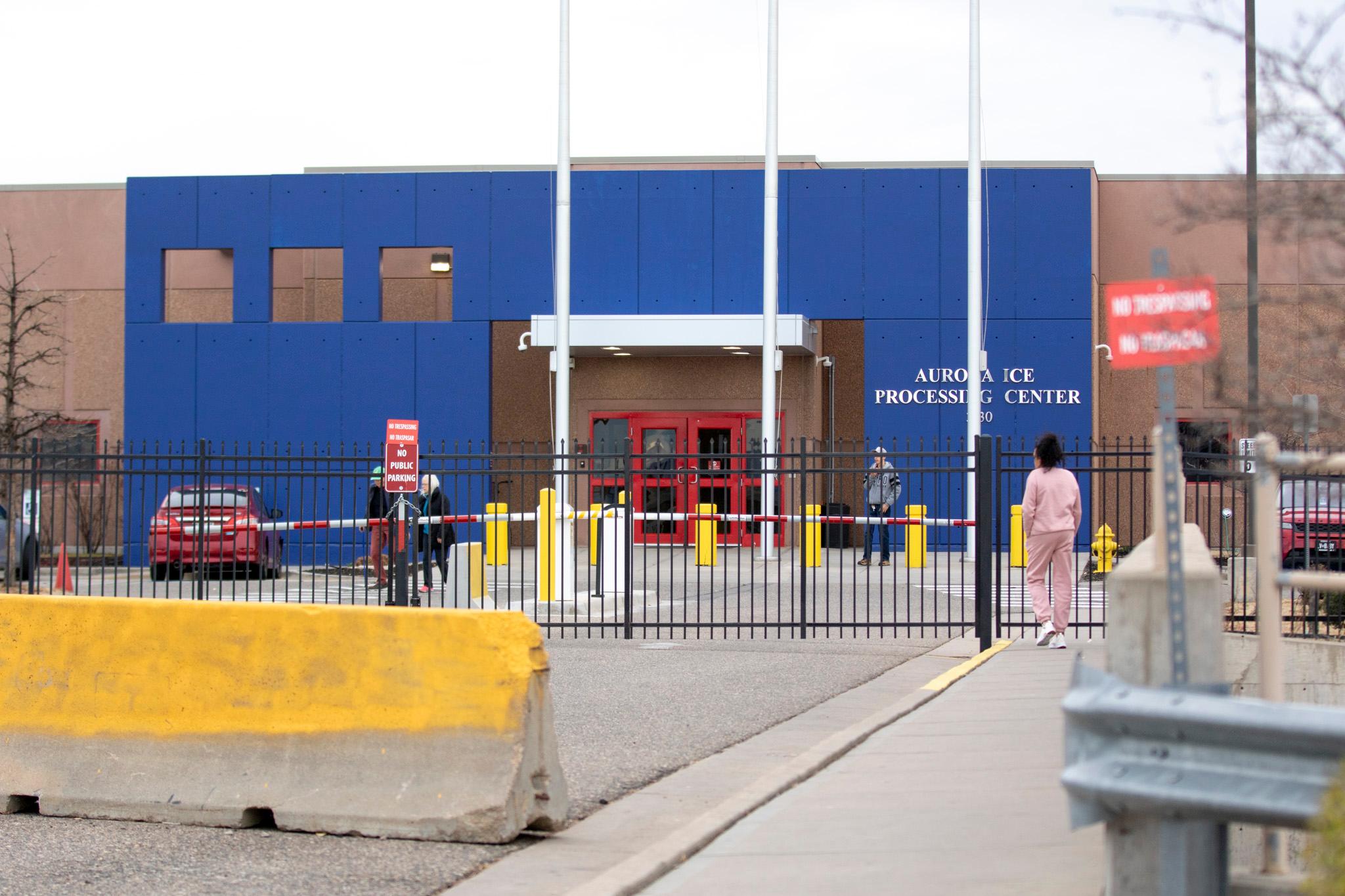

Angie Cavallari grew up in Florida, where her family owned mobile home parks with names like "Placid Lakes," "Pelican" and "Chalet."
Many of the mobile homes were rentals, so Angie had the sometimes filthy job of cleaning up after tenants after they moved out or were evicted. During her childhood, she developed close ties with the residents and heard a lot of tales.
Cavallari now lives in Denver and wrote a book about her youth called "Trailer Trash: An 80s Memoir." She talked to Colorado Matters about the mobile home lifestyle and growing up in the ‘80s.
Read An Excerpt From "Trailer Trash: an 80s Memoir"
A large Ferris wheel loomed taller than any mobile home or prefab house on the street, bursting with rainbow- glowing neon tubes turning in time to “Let’s Dance” by David Bowie—the lack of riders causing each bucket to rock wildly. It was also the kind of house with a plethora of warning signs about dogs hanging loosely fastened to chain-link fences and which sagged, much like Sarah and Samantha’s fortress. The dogs, in this case, could have been canine or human. At first, I thought there was some sort of street festival happening, like the ones I had attended with Sarah and Samantha at their Catholic school festivals and fairs. But the misplaced ride sat in the front yard of my Papa and Grandma’s new neighbors and at the entrance of their recently acquired mobile home park, Chalet. Typically, the word “Chalet” would bring up images of quaint Swiss villages nestled among snow-covered peaks. But Grandma and Papa’s Chalet was a long, hard, rocky road that led to a circle of nine very neglected, single-wide mobile homes surrounding a rusty shed that had weathered many storms but could easily be knocked over by a quick breath. An additional quarter-mile of large chunks of discarded concrete paved the way to Grandma and Papa’s new home—a single-wide trailer infested with wolf spiders. Grandma’s theory was that raised potholes deterred speeders by slowly killing the alignment and axles on most vehicles. Wolf spiders are not poisonous, but they can bite. I never felt the sharp pain from their fangs or was even certain that they had them because the mere presence of these little bastards sent me running at least one mile from where I found them. The arachnids in Grandma and Papa’s mobile home were around an inch in length, and—I swear by all that is holy—I could spot them at night by sweeping the room with a flashlight and catching the shine of their eyes. When discovered, they would jump into the darkness and straight into my nightmares. I never did get over my fear of spiders, but my Papa’s afternoon naps would often calm my nerves while I would stay with them and my arachnid friends. On his nightstand, he kept a small transistor radio and a white, plastic oscillating fan that softly blew the curtains open while his Easy Listening station played. Without fail, “Captain of Her Heart,” by the one-hit Swiss duo Double, would play through the small speaker and the thought of sleeping with my flashlight clutched as a Jedi would fade away. Gibsonton—or “Gibtown,” as it is affectionately known by locals—is the self-proclaimed carny capital of the world by those working in the business. In fact, Gibtown has special zoning exceptions for homeowners so that Ferris wheels, corn-dog stands, and tilt-a-whirls can sit smack dab on your front lawn. Thanks to all that time spent slurping up greasy burgers and syrupy chocolate milk at Giant’s, I was able to brush up on carny lingo and better understand Papa and Grandma’s second home. |









